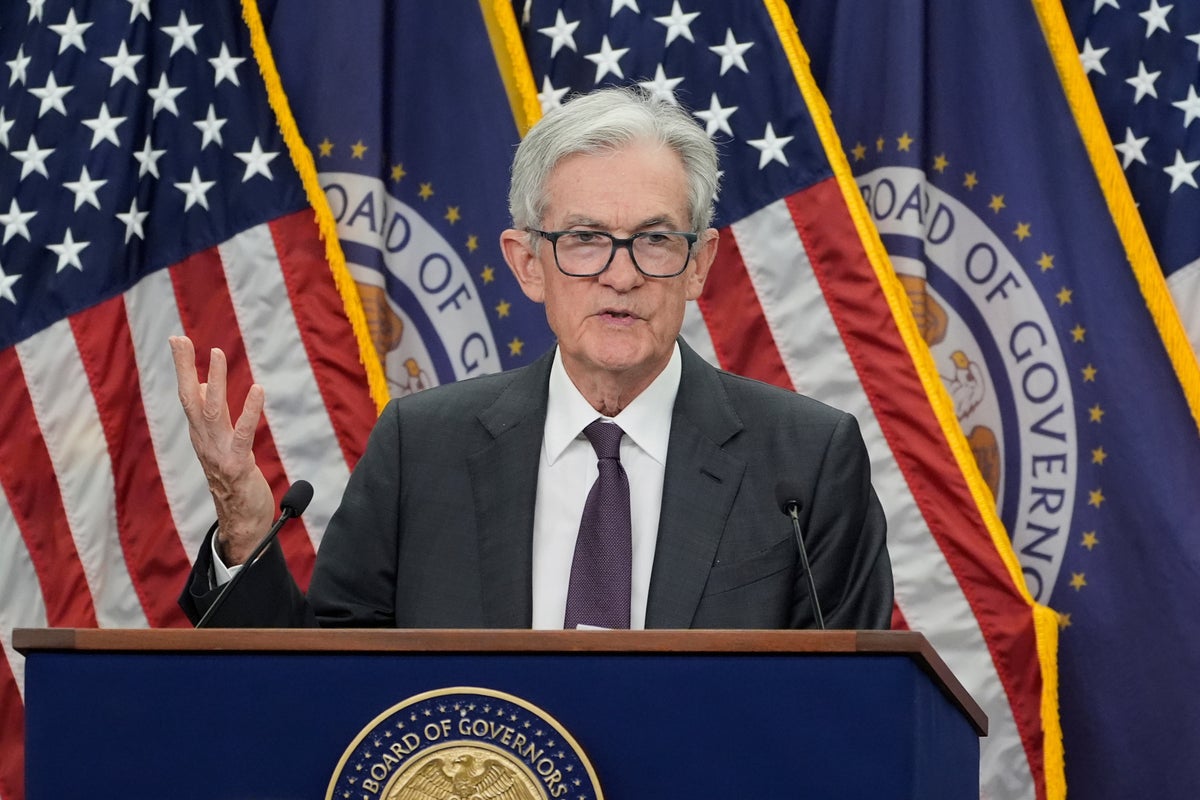
Federal Reserve Chairman Jerome Powell announced on Wednesday that the central bank would cut rates amid President Donald Trump’s attempts to reshape the Fed’s independence.
The chairman announced that the Federal Reserve would cut the interest rate by .25 points, the first time that it cut interest rates since December.
The rate cut comes as inflation has continued to climb amid Trump’s “Liberation Day” tariffs that came into full effect last month. Powell in the past has warned about the fact that tariffs could contribute to inflation. Powell said that the tariffs will have a one-time effect.
"It is also possible that the inflationary effects could instead be more persistent and that is a risk to be assessed and managed," Powell says.
Typically, the central bank raises interest rates to combat rising prices. But the central bank’s dual mandate also requires it to keep unemployment low. The two most recent jobs reports showed lackluster growth in labor.
“Our tools can’t do two things at once,” he said. “What we do is we ask is how far is each from the goal and how long is it expected to get to the goal.”
Low interest rates have long been a tool to keep unemployment low. Trump has said he would like to see rates lowered to boost unemployment despite the risks to inflation. But many also fear that the influx of tariffs could increase prices while the labor market continues to soften.
Powell also spoke about how wage growth continues to moderate but continues to outpace inflation.
“The slowdown in both the supply of and demand for workers is unusual,” Powell said in his opening remarks. “In this less-than-dynamic and softer labor market, the downside risks to employment have risen.”
This comes as Trump has staged an unprecedented assault on the independence of the Federal Reserve, which has long been a core tenet of monetary policy in the United States.
Earlier this week, the U.S. Court of Appeals for the District of Columbia blocked the Trump administration’s attempt to fire Lisa Cook, a member of the Federal Reserve’s Board of Governors.
This came after a lower court allowed Cook to stay on the board when Trump tried to fire her once Federal Housing Finance Agency Director Bill Pulte accused her of making false statements on mortgage requirements.
In addition, this week, the Senate voted to confirm Stephen Miran to the Board of Governors despite the fact he simultaneously holds a position as the chairman of Council of Economic Advisers. Miran dissented from the Federal Reserve’s decision, saying that he wanted to cut interest rates by 0.5 percent.
But Powell demured when asked about Pulte’s arrival.
"The committee remains united in pursuing our dual-mandate goals,” he said. “We're strongly committed to maintaining our independence and beyond that I don't have anything to share."
By the same token, he dodged questions about the court case surrounding Cook.
“I see it as a court case that it would be inappropriate to comment on,” he said.
Trump has in the past called Powell “too late” and a “stupid person” for his refusal to cut interest rates. His administration has also criticized planned renovations for the Federal Reserve’s office building in Washington, with Trump visiting the building this summer, where Powell challenged Trump about the projected costs.
Powell, whom Trump nominated to lead the Federal Reserve in 2017 and whom Joe Biden renominated, will see his term expire in May of next year. The Federal Reserve Chairman serves for a five-year term. When asked about leaving the Federal Reserve, he said, “I have nothing new on that for you today.”
The Federal Reserve will next meet in November.







